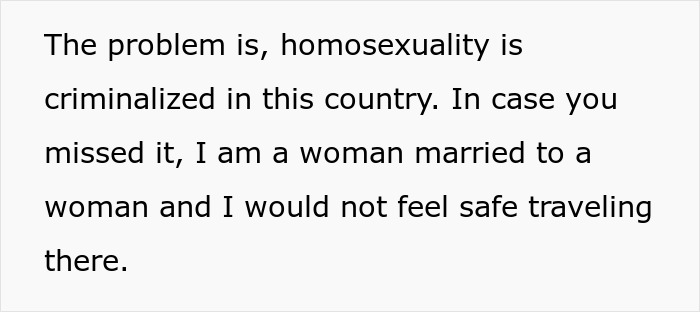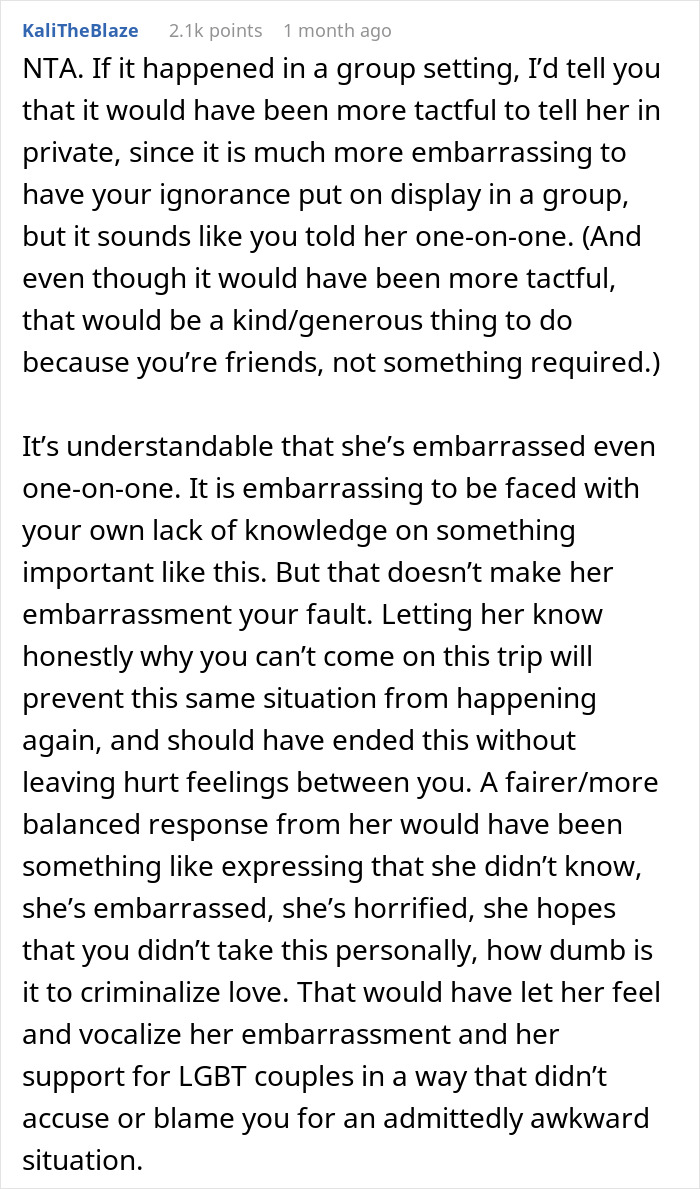Recently, Reddit user Ok-Tower7381 and her wife were invited to join their friend on a trip to the Middle East. One problem, though: the destination country says women have no right to be together and has developed a legal system to punish everyone who disagrees. Naturally, the couple said no. However, the friend didn’t get why they would refuse and interrogate them until she got a straight answer, which, the woman claimed, was delivered in a disrespectful manner. Thus, an exchange that should’ve been only a few messages had blown up completely out of proportion.
Some people seem totally oblivious to how the world works

Image credits: Keira Burton/Pexels (not the actual photo)
And when you have a friend like that, every once in a while, you have to bring them back to reality





Image credits: Monstera Production/Pexels (not the actual photo)





Image credits: Ok-Tower7381
The consequences of such a trip going wrong could be extremely severe

Image credits: Freepik (not the actual photo)
According to the Human Rights Watch, at least 67 countries have national laws criminalizing same-sex relations between consenting adults.
Legal sanctions against same-sex conduct vary in scope and application. In some countries, only specific sexual acts are punished, while in others, the laws are more general, vague, and open to interpretation.
Sentences range from fines to life imprisonment and even the death penalty. In some countries, the laws are rarely enforced (but nonetheless have severe consequences for LGBT people, serving to justify discriminatory treatment and impeding LGBT people’s access to employment, health services, and police protection), but in others, law enforcement agencies aggressively pursue and prosecute people suspected of being lesbian, gay, bisexual, or transgender.
As the author of the post mentioned, many countries only criminalize same-sex relations between men. However, at least 38 criminalize same-sex conduct regardless of sex or expressly criminalize sexual conduct between women.
At least 10 countries have, since 1986, explicitly enacted laws that criminalize sex between women as well as men, sometimes perversely portraying this as a gesture toward equality.
Now, the couple probably could join their friend on her trip, but they would not be able to show any public signs of affection or do anything that would suggest they’re in a relationship.
There might be some value in such a journey. Rajiv Desai, a gay Berlin-based diversity, equity, and inclusion practitioner, who has lived in India, the USA, and the UAE, admits that traveling for LGBT people is challenging but says it also helps to better understand how queer people navigate and survive in places that are against them.
“There is something to be said about visiting those countries and seeing the communities that live there (and) getting to know them,” he lgbtq-laws/a-65768505″ target=”_blank” rel=”noopener”>explains. But of course, if the Redditor and her partner don’t want to do that, they shouldn’t have to justify themselves.
Most of the people who read the woman’s story believe she did nothing wrong












But a few think she could’ve handled the situation better



from Bored Panda https://ift.tt/zWRdF1B
via IFTTT source site : boredpanda